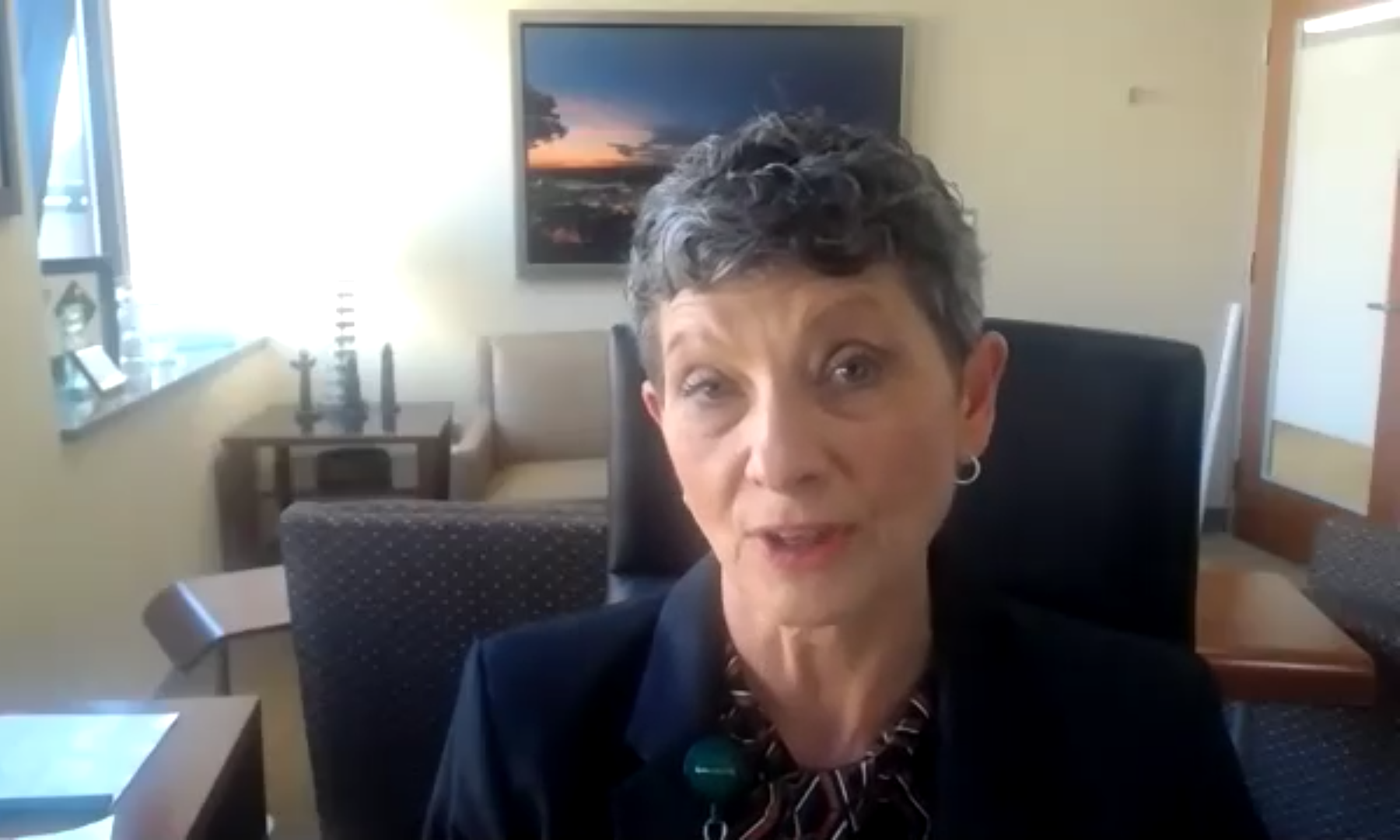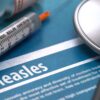Nurses at UAB Hospital in Birmingham are caring for more COVID-19 patients than ever before, and the patients they’re seeing are sicker, said the hospital’s chief nursing officer Tuesday, when Alabama saw another record-breaking day of COVID-19 hospitalizations.
The work is taking a toll and the nurses are exhausted, explained Terri Poe, UAB’s chief nursing officer, speaking to reporters during a briefing Tuesday.
Poe said that patients at UAB “are more sick than they’ve ever been” and that the most challenging are the patients in the hospital’s intensive care beds, who require more care and now, without the aid of family members sitting bedside.
“Those patients are also alone,” Poe said. “Our nurses are required to be the family member and the communicator to their real families, and do a lot of extra work just to keep them updated.”
Many COVID-19 patients can use their cell phones or visit with family via webcam, but Poe said “still, these people are extremely alone.”
The rising numbers at UAB and across the state are worrisome. UAB on Tuesday had 140 hospitalized COVID-19 patients, and the number statewide reached a record 2,097. The average number of people in hospitals with COVID this week was at a record high of 1,903. That’s a 41 percent increase from two weeks ago. Huntsville Hospital was caring for a record 403 coronavirus patients on Tuesday, an 88 percent increase from just three weeks ago.
{{CODE2}}
“All healthcare professionals are fatigued. We’re tired, and the nurses are tired. Here at UAB, where we’re seeing a lot of nurses who are out with either their quarantine themselves or a lot have COVID,” Poe said. “And we’re seeing a lot of community-acquired COVID.”
The latest White House Coronavirus Task Force State Report for Alabama, released Sunday, states that Alabama is seeing rising cases, hospitalizations and deaths, and the state’s positivity rate ranks 12th highest in the country. APR’s calculations put Alabama’s average positivity rate over the last week at 33 percent. Public health experts say it needs to be at or below 5 percent or cases are going undetected.
{{CODE3}}
The report also notes that 91 percent of Alabama’s counties have moderate or high levels of community transmission, with 73 percent having high rates of transmission.
The Alabama Department of Public Health on Tuesday reported 4,436 new cases but noted that 1,511 were older test results, conducted from Nov. 30 to Dec. 5, which were just turned in to the department from two outside facilities on Monday.
That leaves 2,925 news cases recorded on Tuesday, which put the state’s 14-day average for new daily cases at a record high of 2,843.
{{CODE4}}
“Despite the severity of this surge and the threat to the hospital systems, many state and local governments are not implementing the same mitigation policies that stemmed the tide of the summer surge; that must happen now,” the report reads.
“Mitigation efforts must increase, including the implementation of key state and local policies with an additional focus on uniform behavioral change including masking, physical distancing, hand hygiene, no indoor gatherings outside of immediate households, and aggressive testing to find the asymptomatic individuals responsible for the majority of infectious spread,” the report continues.
The report also states that current vaccine implementation “will not substantially reduce viral spread, hospitalizations, or fatalities” until the 100 million Americans with underlying health conditions can be fully immunized “which will take until the late spring.”
“Behavioral change and aggressive mitigation policies are the only widespread prevention tools that we have to address this winter surge,” according to the report.
In addition to requiring masks be worn at all times in public, the task force recommends increasing physical distancing through a significant reduction in capacity or by the closure of public and private indoor spaces “including restaurants and bars.”
Alabama Gov. Kay Ivey has recently said she has no plans to enact further restrictions on Alabama businesses, which are now operating largely without any restrictions, except for Ivey’s statewide mask order, which is set to expire Friday. Ivey could extend the mask order before then, which she’s done several times before.
The high number of deaths from COVID-19 is taking a toll on the nursing staff as well, Poe said, especially among nurses new to the field. The state’s COVID-19 death rate per 100,00 residents is up 107 percent from the previous week, according to the White House Task Force report.
“Nobody really prepares them for that, and they come into the organization and people are so sick. It has a toll,” Poe said.
{{CODE1}}
The hospital is taking advantage of all it can to help staff cope with the emotional and physical toll COVID-19 is having on them, Poe said, from classes on resiliency and on how to decompress, to chaplains who not only make rounds with the patients but with hospital workers as well.
“But it really is hard. They need more time off than they have, and the environment is fairly intense when you’re here,” Poe said.
UAB has about 115 traveling nurses currently, and while many of them have been in place for some time, Poe said she’s seeing a “huge surge” in the number of traveling nurses used all across the country, as hospitals work to keep up with the demand of COVID-19.
Hospital staff are excited that a vaccine could soon be available to them, Poe said. Pfizer’s vaccine is awaiting final emergency use authorization from the U.S. Food and Drug Administration, which is expected to take place at a Thursday hearing. Medical workers at most risk from COVID-19 will be among the first to receive immunization, according to the Alabama Department of Public Health’s plan.
“We already have a great plan outlined, not only for our staff to receive the vaccines, that we’re hoping will start next week but also for others, in a drive-thru opportunity as well, to receive the vaccine moving forward,” Poe said.
Asked what the community can do to help nurses, Poe recommended doing what public health experts have been pleading with the public to do to help slow the spread.
“I think the greatest thing that the community can do is wear your mask,” Poe said. “Or when you go out and about, wash your hands, and stay home if you possibly can.”




















































